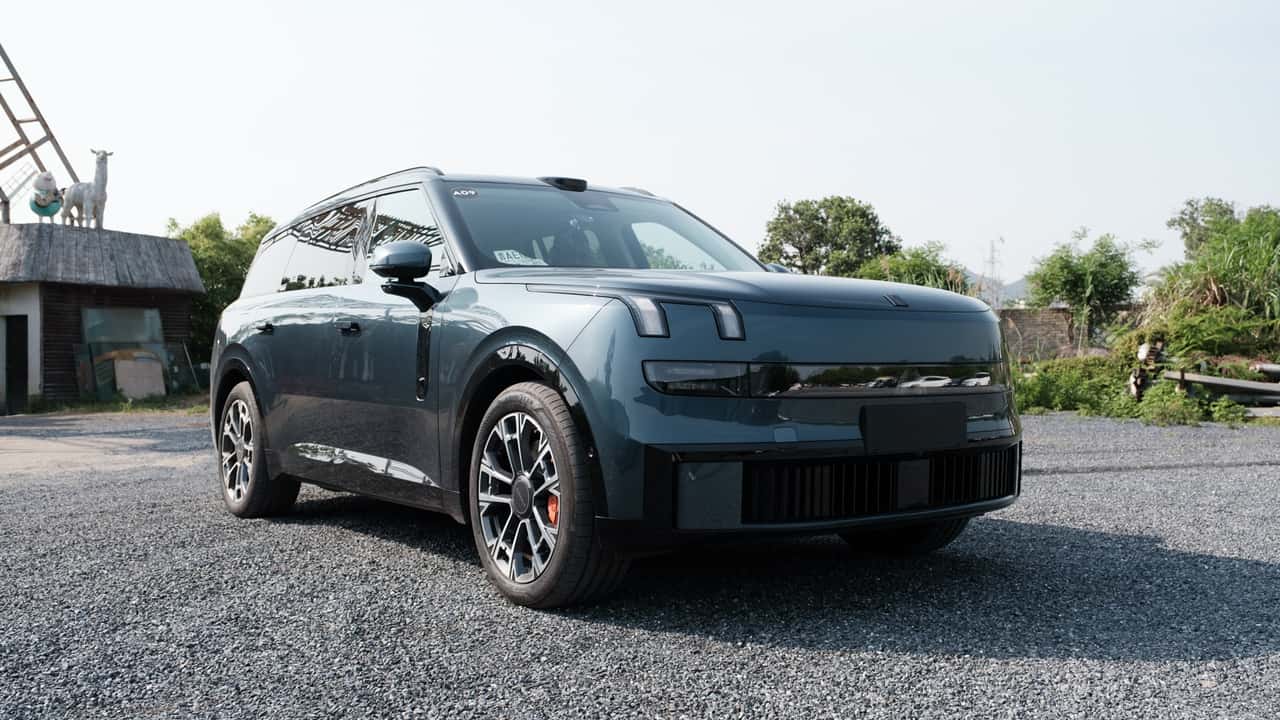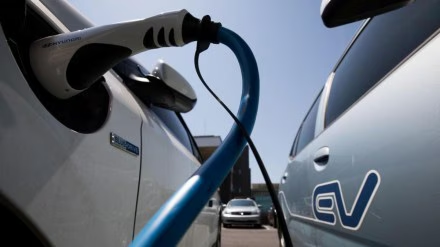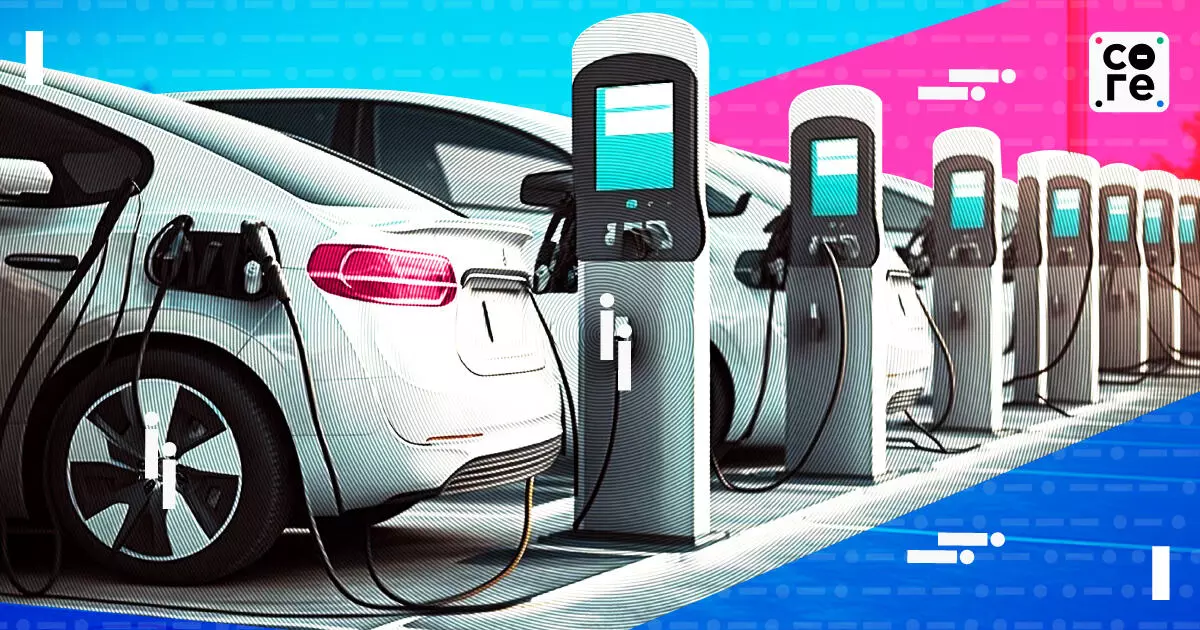As electric vehicles (EVs) become more mainstream, they promise cleaner transportation and reduced reliance on fossil fuels. Yet, one concern consistently surfaces among both potential buyers and existing owners: charging time. Unlike the few minutes it takes to refuel a gasoline vehicle, charging an EV can take anywhere from 30 minutes to several hours, depending on the hardware, software, and infrastructure available. However, many people are speculating if there can be a convergence of the two modern technologies – AI and EV, to reduce charging time for electric vehicles subsequently.
While battery technology continues to improve, there’s a new force accelerating the pace of innovation: Artificial Intelligence (AI). Often associated with voice assistants, navigation systems, and autonomous driving, AI is also emerging as a game-changer in how EVs manage their charging routines. From optimizing when and where to charge to enhancing the actual process of energy transfer, AI is quietly reshaping the EV ownership experience.
This again raises the same critical question: Can AI reduce charging time for electric vehicles, and is this transformation already underway? As it turns out, the answer is more than just a hopeful “yes.” Automakers, tech firms, and energy providers are investing heavily in AI-driven solutions to address charging delays and make EV ownership more convenient than ever before. In the sections ahead, we’ll explore the real-world applications of AI in EV charging and what this means for the future of electric mobility.
The EV Charging Bottleneck
Understanding how AI can reduce charging time for electric vehicles starts with identifying the challenges in today’s charging landscape.
EV charging generally falls into three categories:
- Level 1 (slowest, standard home outlet)
- Level 2 (faster, common in homes and workplaces)
- DC Fast Charging (public high-speed stations)
While Level 1 and 2 are sufficient for overnight or daily use, fast charging is essential for long-distance travel or quick top-ups. Unfortunately, fast chargers are not yet universally accessible, and their performance can be inconsistent due to location, demand, or power grid constraints. Moreover, battery chemistry remains a bottleneck. High-speed charging generates heat, which can degrade battery life if not properly managed. To protect the battery, the car’s software may intentionally slow charging, especially in extreme temperatures.
Finally, grid load presents another complication. When multiple vehicles charge at once, especially during peak hours, the energy demand can outpace supply, resulting in throttled speeds or temporary limits. This complex web of limitations frustrates many would-be EV owners. The promise of a sustainable and convenient driving future is strong, but the charging experience must be faster, smarter, and more reliable.
Enter AI; a technology that’s poised to address each of these problems by optimizing charging decisions, predicting demand, and improving hardware utilization, all while protecting battery health.
5 Ways AI Can Reduce Charging Time For Electric Vehicles
Here is how artificial intelligence can reduce charging times and improve the efficiency of electric vehicles:
- AI Technology Revolutionizing EV Charging
- Smart Grid Integration and Load Balancing
- Battery Management and Longevity
- AI at Charging Stations
- In-Car AI Charging Assistants
Let us look into the details of how AI assistance can reduce car charging and make your driving experience a smooth and memorable one.
How AI is Revolutionizing EV Charging?
AI is no longer just a futuristic buzzword; it’s actively transforming how EVs charge and interact with their environment. Today’s smart charging systems use AI to improve everything from the speed of energy transfer to the planning of your next charging stop.
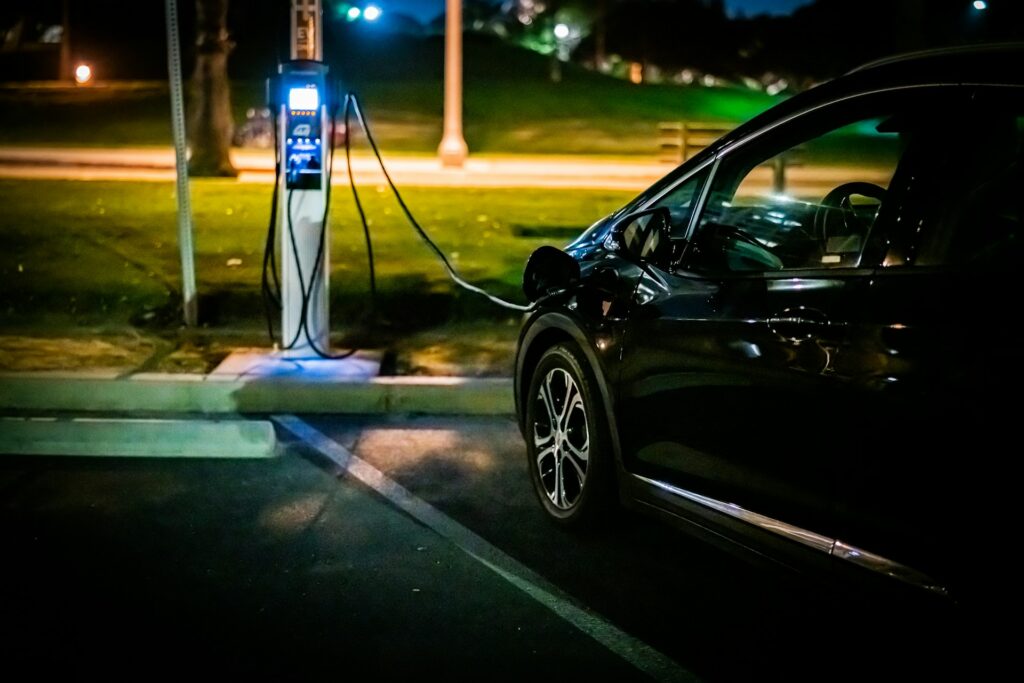
Real-Time Data Optimization
AI systems continuously process data on battery health, ambient temperature, power grid capacity, and charging station usage. By analyzing this data in real time, EVs can dynamically adjust charging speed to maximize efficiency and minimize wear. For example, if the battery is too cold, the AI can precondition it before charging, improving speed and preserving long-term battery life.
Predictive Charging
AI doesn’t just react; it anticipates. Based on your driving habits, commute patterns, and calendar events, AI can schedule the optimal time and location for charging. It may recommend delaying a charge until off-peak hours or guiding you to a faster, less busy charger on your route.
Thermal Management
Fast charging heats up batteries quickly. AI-enhanced thermal systems monitor and control battery temperature during charging, reducing the risk of damage and improving speed by keeping cells within the ideal thermal range.
Tesla’s AI in Action
Tesla leads the pack with its AI-driven Supercharger network. Their system adapts charging speeds based on station congestion, vehicle type, and predicted demand. It even suggests alternative charging stops if your planned one is likely to be full, minimizing delays and wait times.
The result? A faster, safer, and smarter charging experience. With AI managing the complexity, EV owners can enjoy shorter wait times and a more seamless journey, proving that yes, AI can reduce charging time for electric vehicles in more ways than one.
Smart Grid Integration and Load Balancing
One of the most exciting ways AI can reduce charging time for electric vehicles is by intelligently coordinating EV charging with the local energy grid. EV charging doesn’t happen in isolation; it relies on the availability and capacity of the power grid, which is often under strain during peak hours or in densely populated areas.
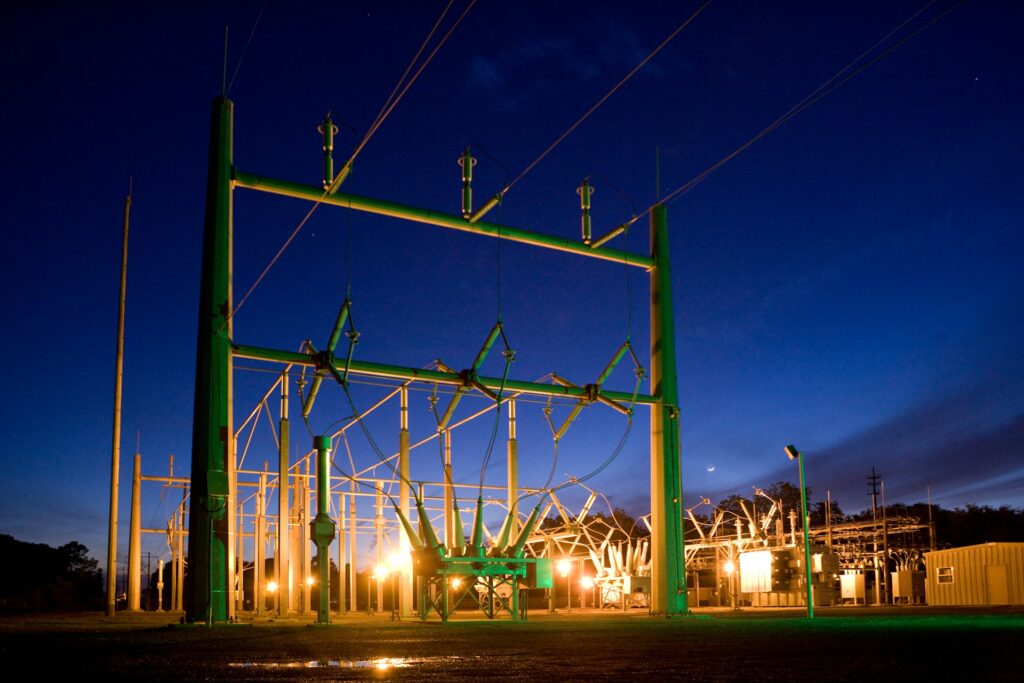
AI systems act as the brain behind smart grid integration, constantly analyzing data from the grid, weather forecasts (to predict renewable energy generation), and EV charging demand. This enables grid-aware charging patterns that optimize when and how vehicles charge to avoid overloading the system.
A particularly innovative concept is Vehicle-to-Grid (V2G) technology, where EVs can not only draw power but also supply excess stored energy back to the grid during peak demand. AI algorithms determine the ideal times for these bi-directional energy flows, balancing the needs of drivers with grid stability.
The benefits of AI-managed grid integration are twofold:
- It reduces strain on the grid, preventing blackouts or the need for expensive infrastructure upgrades.
- It gives EV drivers faster access to peak charging rates when the grid has surplus power, such as during midday solar generation.
Ultimately, AI-driven grid integration creates a win-win scenario, a more resilient energy network, and a faster, more reliable charging experience for EV owners. This synergy between vehicle and grid exemplifies how AI’s predictive power can revolutionize charging beyond the vehicle itself.
You can also check out: Top 12 EV-Friendly Cities in India: Best Cities in India for Electric Cars
Battery Management and Longevity
Charging speed is important, but it shouldn’t come at the expense of battery health. This is where AI’s role in battery management becomes critical, ensuring fast charging cycles do not degrade battery life prematurely. Modern EV batteries are complex systems that can suffer from heat buildup, uneven wear, and chemical aging, all accelerated by aggressive charging habits. AI tackles this by enabling smart charging cycles that adapt in real-time to the battery’s condition.
For instance, AI continuously monitors each battery cell’s temperature, voltage, and state of charge, adjusting the charging rate dynamically to minimize stress. If a cell is heating up too quickly, the system slows charging or activates cooling mechanisms. Conversely, if conditions are optimal, it can safely increase charging speed.
This adaptive fast charging approach balances the desire for shorter charging times with the necessity of prolonging battery lifespan. AI-driven management also learns from historical usage data, refining algorithms to better protect the battery over the years of operation.
The impact? EV owners benefit from faster charges without sacrificing battery longevity, reducing costly battery replacements, and maintaining vehicle performance. As a result, AI not only makes charging quicker but also smarter and more sustainable.
AI at Charging Stations: From Queues to Quick Turnarounds
Even with rapid chargers, the real-world experience of EV charging often involves waiting in line or searching for available stations. Here, AI is playing a transformative role in optimizing charging station operations to reduce wait times and accelerate turnaround.
Intelligent station management systems use AI to monitor charger occupancy, predict demand spikes, and direct vehicles to the most suitable chargers. This prevents bottlenecks by balancing load across all available chargers rather than letting some sit idle while others are overwhelmed. Many networks also use AI-driven scheduling and reservation systems, allowing drivers to book charging slots in advance. This reduces uncertainty and eliminates “charger hunting,” particularly in high-traffic areas or on long trips.
Leading examples include Electrify America and Ionity, which have integrated AI-based load prediction models into their infrastructure. These systems forecast when and where demand will peak, enabling dynamic pricing, resource allocation, and preemptive maintenance. The result is fewer queues, more reliable service, and overall better utilization of charging assets.
By streamlining these processes, AI helps turn charging stations into efficient hubs where quick turnarounds are the norm, making EV ownership more convenient and practical.
In-Car AI Charging Assistants
Beyond the charging stations themselves, AI is increasingly embedded within vehicles to help drivers manage charging more intelligently. In-car AI charging assistants serve as personal energy copilots, analyzing driving habits, routes, and battery status to recommend the best times and places to charge.
These assistants integrate seamlessly with navigation systems and popular charging apps, creating personalized charging plans that minimize downtime. For example, based on real-time traffic conditions and your itinerary, the AI might suggest a slightly longer detour to a faster charger, saving you overall trip time.
Looking ahead, these systems have huge potential to become even more proactive. Imagine an AI assistant that negotiates charging rates automatically, choosing the most cost-effective options based on your preferences and available incentives. Or one that preconditions your battery on the way to the station, warming or cooling it to optimize charging speed and protect battery health.
By bridging vehicle, driver, and infrastructure data, in-car AI assistants make the charging experience more efficient, affordable, and stress-free. They represent the next evolution in EV ownership, empowering drivers with smart, data-driven decisions that help overcome charging challenges before they arise.
Challenges and Limitations in AI-Driven EV Charging
Infrastructure Gaps Limit AI Effectiveness
Despite its promise, AI’s ability to reduce charging time for electric vehicles faces obstacles, starting with the charging infrastructure. Many regions still lack widespread fast chargers or networks that support AI-enabled load balancing. Without consistent data flow from these stations, AI systems cannot optimize charging effectively.
Data Silos and Integration Issues
AI depends on real-time data from vehicles, grids, and charging stations. However, information is often siloed across different manufacturers and utilities, hindering seamless data sharing. This fragmentation slows the progress of AI-powered charging solutions.
Uneven AI Technology Adoption
While companies like Tesla lead with advanced AI charging management, many automakers are still developing their capabilities. This uneven maturity results in inconsistent user experiences and market fragmentation.
Privacy and Security Concerns
AI-integrated EVs collect sensitive data like location and charging habits. Protecting this information from cyber threats is essential to maintaining consumer trust and ensuring safety.
In conclusion, while AI can reduce charging time for electric vehicles, overcoming these infrastructure, data, technology, and security challenges is critical for the future of smart charging.
What AI-Enhanced Charging Means for New EV Buyers
Reducing Range Anxiety with Smarter Charging
For new EV buyers, AI-powered charging systems offer reassurance by intelligently managing charging times and locations. This helps alleviate range anxiety, allowing drivers to plan longer trips with minimal wait times.
Faster, Smarter Charging on the Go
AI reduces charging time for electric vehicles by providing real-time, personalized charging suggestions integrated with navigation. Drivers receive optimized routes with ideal charging stops, minimizing downtime and enhancing convenience.
Choosing EVs with Advanced AI Charging Systems
When buying an EV, look for models that incorporate AI in their charging ecosystems. Tesla’s Supercharger network, Hyundai’s Bluelink, and BMW’s Intelligent Personal Assistant are examples of smart charging solutions that boost efficiency and battery health.
Ultimately, AI-driven charging technology transforms EV ownership into a more confident, convenient lifestyle, making electric driving accessible to new buyers and seasoned drivers alike.
Frequently Asked Questions (FAQs) About AI and EV Charging
Q1: How does AI reduce charging time for electric vehicles?
AI optimizes charging by analyzing real-time data such as battery status, user habits, grid load, and traffic conditions. It schedules charging at the best times, manages battery temperature, and balances energy demand to speed up the process safely without damaging the battery.
Q2: Are AI-powered charging systems available in current EVs?
Yes, several EV manufacturers like Tesla, Hyundai, and BMW have integrated AI into their charging ecosystems. Tesla’s Supercharger network uses AI to manage charger availability and optimize charging speed, while other brands offer smart in-car assistants that suggest the best charging stops.
Q3: Will AI make charging stations faster and less crowded?
AI can reduce wait times by managing station queues and directing vehicles to available chargers efficiently. Intelligent scheduling and load prediction help minimize congestion and allow for quicker turnarounds at busy charging hubs.
Q4: Is AI safe to use with my EV’s battery?
Yes. AI systems monitor battery health closely and adjust charging rates to prevent overheating or overcharging, which extends battery life while still reducing charging time.
Q5: What challenges exist for AI in EV charging?
Challenges include limited fast-charging infrastructure in some areas, data sharing restrictions between networks and manufacturers, uneven AI technology adoption, and concerns about data privacy and cybersecurity.
Q6: How can I find EVs with the best AI charging features?
Look for brands that emphasize smart charging technology in their marketing and user manuals. Tesla, Hyundai, and BMW are leaders in this area, but many manufacturers are rapidly adopting AI-powered charging solutions.
Q7: Does AI completely eliminate range anxiety?
While AI significantly helps by optimizing charging and trip planning, range anxiety can still be a factor depending on driving habits and infrastructure. However, AI tools are making long-distance EV travel more convenient and reliable.
Conclusion: The Road to Smarter Charging Starts Here!
The answer is clear: AI can reduce charging time for electric vehicles, and the technology is already reshaping how we power our rides. From intelligent load balancing at charging stations to personalized in-car charging assistants, AI is making EV ownership easier, faster, and more enjoyable.
For buyers, this means quicker turnarounds, fewer frustrations, and smarter trip planning. As AI continues to evolve, the tedious task of charging your vehicle will feel less like refueling and more like a seamless, integrated digital experience, tailored just for you.
The future of EV charging lies at the intersection of cutting-edge AI, expanded infrastructure, and user-centric design. Those who choose to embrace these advancements today will enjoy a smoother transition to electric mobility with greater convenience and reliability.
Ready to Embrace Smarter EV Charging?
Explore the latest electric vehicles equipped with AI-powered charging systems and experience a new era of smarter, faster, and safer driving. Don’t just upgrade your car—upgrade your entire driving experience.

